By Uran Kalakulla
Part One
Nazism and Communism
Memorie.al / Nazism lasted 12 years, while Stalinism lasted twice as long. In addition to many common characteristics, there are many differences between them. The hypocrisy and demagogy of Stalinism was of a more subtle nature, which was not based on a program that was openly barbaric, like Hitler’s, but on a socialist, progressive, scientific and popular ideology, in the eyes of the workers; an ideology that was like a convenient and comfortable curtain to lie to the working class, to lull the sharpness of intellectuals and rivals in the struggle for power.
One of the consequences of this peculiarity of Stalinism is that the entire Soviet people, its best, capable, hardworking and honest representatives, suffered the most terrible blow. At least 10-15 million Soviets lost their lives in the KGB torture chambers, martyred or executed, as well as in the gulag camps and others like them, camps where it was forbidden to correspond (in fact they were prototypes of the Nazi death camps); in the mines in the ice of Norilsk and Vorkuta, where people died of cold, hunger, from crushing labor in countless construction sites, in the exploitation of forests, in the opening of canals and during transportation in leaded wagons, or in the flooded barns of the death ships.
ALEXANDER SAKHAROV
Thoughts on East-West Progress. 1968- “Lives des lives du XX e siëcle”, Part Europa, 1992 France.)
The legacy of lost graves
The souls of those anti-communist political prisoners and internees who remained in lost graves will never find peace. And why not, even the hearts of our fellow sufferers, who are still truly alive, if, for the record, the causes, the creators and the perpetrators of the atrocities and crimes that were committed against their lives and their backs are not justly punished.
This is and must be the requirement, the first norm of a legal state, of a true democracy, of a free people, as well as the first step to subsequently achieving national reconciliation, so desired by our own people and by the entire democratic world. Where crime is not punished, there is no justice, there is not and cannot be democracy, there is no legal state. There is only one Babylon, where immorality and crime mock honesty, virtue. Such a society is not at all human, but a jungle, with all its savagery, ugliness, insecurities and horrors!
Writing about prison
Writing about prison is not an easy task. First, because it cannot be included in a single book, even the simple chronicle of long years, almost an entire life. And in my case, as well as in many others like me, who had the misfortune to spend over twenty years in prison, this task becomes even more difficult. Think that twenty-one years in prison make 252 months, 1092 weeks, 7665 days, 183,960 hours. Let’s leave the minutes and seconds, although in prison, in a certain state, even every minute, if not second, endangers your life!
Secondly, writing about prison is painful, because when you have experienced such a misfortune, you will have to relive, if only this time, spiritually, the long suffering and humiliations suffered! Thirdly, even if you remember the events of each day, regardless of the pain you feel, to write them down would take entire volumes, I don’t know how many. I myself could not do such a job. And I don’t know if any of my fellow sufferers, no matter how talented, could do it.
Thus, precisely for this reason, one is forced to give only the essence, marking the most important, most significant, most representative, strongest events, those that have remained in our consciousness as indelible, painful traces, with pronounced emotional tones and with the most meaningful content.
Some of my fellow sufferers, perhaps precisely for the reasons mentioned above, say that it is better to try to forget what we have removed. I, on the contrary, think that such a task is neither entirely possible nor right. Memory, this wonderful faculty of human consciousness, as an inseparable part, I would even say as the main one, of intelligence, is the main evidence, among other things, for history. And if history, as the Latins say, is truly the teacher of life (historia magistra vitae), to try to erase from memory and documentation the most dramatic part, not so much of an individual, but of more than one human generation, is more than unjust, it is a sin!
The inhuman suffering of the “innocent guilty”, the suffering of the communist prison, of this hell on earth, not only should not be forgotten or set aside, but on the contrary, they should be brought out as accurately as possible, with complete visibility, thus forming a testimony, an indictment against the communist regime and system, which was and remains one of the most cruel that the history of humanity has recorded to this day. In other words, a testimony for the fair trial of the true culprits, the originators and implementers of this ghastly system, both on the national and international levels.
For the first time in the history of mankind, an international trial was institutionalized against Nazi crimes and genocide, such as the Nuremberg Trials in 1946, where, as is known, Hitler’s hierarchs were convicted. Then, as a natural continuation of it, in various European countries and even in Japan, trials continued against Nazi, fascist, and Japanese samurai criminals and their various collaborators. Thus, in France, General Pétain, former Vichy government minister Laval, etc. were convicted. The Israelis went and crossed over to Latin America the German Nazi, Heiman. The Italians convicted the Nazi commander of Rome, Kapler, responsible for the crimes of the Ardeatine Cave.
And to this day this work continues. But a Nuremberg for communist crimes, why has it not been institutionalized to this day? Wasn’t communism the darkest side of the crime medal, even with global proportions and with many times greater victims? How can we explain this? Shouldn’t the wounds of the peoples who suffered from communism coexist with the communist gelb? Shouldn’t, instead of an anti-communist Nuremberg, the Gorbachev scheme of Katowice be accepted now?
What is this dirty historical compromise? Where does Western European and American justice stand, so trumpeted today? Isn’t it only in the Hague Tribunal, against Serbian, Croatian, etc. criminals, in the conflict in Bosnia-Herzegovina and Kosovo? Okay, these, but will the crimes of Stalin, Enver Hoxha, Mao Zedong, Pol Pot, etc., be forgiven, forgotten? Oh, today’s crippled, shameful justice! I have a firm conviction that justice is not revenge. And those who theorize and practice it know this very well. So why don’t they do it? Could it be from “major political interests”? Oh, what miserable interests these were!
In Israel, there is a Holocaust museum. There is one in Washington too. I had the opportunity to visit the latter last year and was horrified by its horrific testimonies. But is there a museum of the crimes of communism anywhere? Woe to us, for today’s modern civilization, woe to us! But if such a museum were to be built in our country, would this book of mine be accepted as a modest exhibit among the most important ones? Even for that, I would still be somewhat satisfied. Better an end with horror or an endless horror?
Reading this book, anyone can notice that I do not speak so much about physical torture, about animal beatings and tortures leading to death, but mainly about spiritual suffering. During the entire time of my long imprisonment, I myself and many like I did not suffer such tortures, as those who were in prisons before my time suffered. I would be lying if I did not affirm such a fact. I am accustomed to giving my revenge even to the enemy, because I want to be fair, first to myself, and then to everyone else.
If I had suffered such extreme beatings and tortures, I certainly would not be alive today, especially with my delicate physique, to be able to say what I am writing. It seems to me that honesty and seriousness are worth more in our testimonies, that we have been in prisons, than inflated stories, often exaggerated. Inflated stories, driven by passion and fantasy, I say, can only serve artistic literature (if they can be accepted here), but not concrete and true evidence, which forms the basis of documentation and memoirs.
And in this book, more than literature, I simply want to present real facts, as much as I can, as much as I know, as much as I remember. And in this book I speak mainly about my case, of course without neglecting the suffering of other fellow sufferers of our time. In my opinion, the beatings, deadly tortures, and outright murders of prisoners have not been everywhere and at any time with the same intensity. The greatest intensity was especially around the first decade of communist rule, or something even further, where the largest number of victims are counted, in relation to the time, that is, when terror and murders had reached their peak.
The cruel treatment, torture and cruel and illegal killings, during the nearly half-century of communist rule in our country, have not followed the same straight, uniform line. They resemble, if we continue with the mathematical language, both inside and outside the prison, the direction of a sinusoidal curve, with its ups and downs, these being closely conditioned by the situations and political conjunctures of the time. They intensified when the threat to the absolute power of Enver Hoxha and his followers appeared on the horizon, or when the economy had deteriorated to the point of not getting any worse.
When the situation “calmed down” somewhat and when the illusion of the perpetuation of the miserable power grew, then the repression also somewhat reduced its cruel momentum, but without ever completely dying out, because it is now known that the communist system itself, especially in our unfortunate country, could never live without repression. Because terror was its soul, its blood, its lymph, on which this system was built and with which it could survive. Otherwise it could not be called communist power!
This work happened, by comparison, exactly like in the life of a bloodthirsty, carnivorous beast. The communist power, the thirst for blood and for victims, did not always have the same. When it was somewhat satisfied with them, as if taking a break, it seemed to digest what it had devoured, but it still held some half-alive victim in its bloody claws, crushing it between its paws. I see two other reasons for this “sinusoidal process”.
First, the young beast has more need of the flesh and blood of its victim, to fatten its body and strengthen its bones. And when it starts to get old, it seems that it does not have enough appetite and heels to devour everything that comes its way. Secondly, its claws and teeth, that is, the cadres of the Sigurimi, at the beginning of the communist regime, had just come down from the mountains, educated and instilled with the ferocity of beasts and the barbaric spirit of a centuries-old tribal backwardness, thirsty for blood, revenge, and with the idiotic mind to destroy and annihilate any sign of civilization that came their way: a temple of culture, a dignified and cultured person, a noble citizen or a proud peasant and mountaineer; just like the barbarian hordes that attacked and destroyed classical Greco-Roman civilization.
But, when the ten-year-olds followed each other and the mountain security veterans, as if they had somehow begun to “civilize”, or to retire, their place was taken by their sons, who, having “studied” in special “academies” and learned more sophisticated methods of torture, no longer liked the opinga and panties of their fathers, but began to wear elegant suits and shiny shoes; even the bites and tears of their teeth and claws were somewhat more sophisticated.
They no longer resembled the teeth of a tiger, a shark or a crocodile, but those of a snake, which before biting you, poisons you with a bite and leaves you to die “comfortably” among the writhing…! Thus, in the logic of these young suckers, the question arose: in the end, what did it matter how their enemies would end, with a quick or a slow death? The main thing was that they die, even without much fuss, without much spectacle. Here, this was one of the “dialectical developments” of the Marxist-Leninist, partisan-security theory of Hoxha and his bloody clutches. I and many of my fellow sufferers during my prison time and beyond were more likely to have this kind of fate, the fate of long imprisonment, of a slow death.
The dilemma is very significant: is it better to have a quick end with horror, or an endless horror? Those who were in prison a decade or two before me, were more likely to have a terrible end, annihilation or a quick death. And the rest of us, after them, faced endless horror, a daily, but equally horrific death. The first arrested in the various branches of the Sigurimi, the first prisoners of Burrel, of the Gjirokastra Castle Prison, of the Vloçisht prison camp, of the Juba prison camp, etc., as well as the internees of Tepelena, experienced horrors even greater than ours, a quick death full of horror.
And the rest of us, an eternal horror and a slow death. However, such a reality cannot be divided as with a knife, because even during my imprisonment, the features of violence and torture often changed place and time. Thus, we too were not “immunized” from the risk of a quick death with horror. The Spaçi, Qafë Bari and Burrel prison camps were very similar to those of Vloçisht, Juba and other torture and extermination camps. They are compelling evidence of the tragic and inhuman reality of communist prisons.
Prison roll
It is known that in the biological world, in the living world, there are no identities. There are mostly only analogies. Thus, often, similarity lies in this world, because no leaf of the same tree is mathematically equal to its friend of the same species. Let alone among plants, trees, animals, whether these are of the same species or genus, as they say. What about humans? Of course, the latter also have a spiritual world, a conscience. Indeed, this is one of the main premises of existentialist philosophy, so fashionable in our time.
Prison is like a roller, not flat, but with steel spikes in its roundness, something more or less like tank chains. Woe to anyone who has the misfortune to fall under the weight of such chains. Thus, not all those who experience prison, especially the communist one, can withstand its violence. First, because not all the unfortunate prisoners of prison have the same spiritual formation, the same resilience, the same character, especially the same personality. The alienation of the human world is clearly visible, better than anywhere else, in prison.
And consequently, no one is a hero when they go to prison, but they can become one there, or they can go to the other extreme, that is, from a man, to a caterpillar, to a worm that crawls away, just to be able to save their miserable existence. Thus, consequently, prison has two faculties: that of honor and manhood and that of shame and meanness. And the communist prison preferred, even had in mind, to produce “graduated cadres”, mainly from the second faculty. Whereas those from the first, received their diploma secretly, stealthily, for the anger of the “rectorate” and the “pedagogical body of the university” that is called a prison, especially a communist prison.
I have seen people who entered prison honest and came out of it shameless. I have also seen people who seemed quite simple, even humble in their behavior, when they first came to the prison door, and came out of there (when they could), with their heads held high and with the light of honor and pride on their foreheads and in their eyes. I have seen people who had gone through a strong, very difficult interrogator. And they, in the camp or prison, began to be cruel at first and then to become evil, spies, etc. Sadness, hunger, suffering, boredom, began to corrode their character, just as rust corrodes metal, and moisture corrodes iron.
I have seen young people or adolescents who came to prison clean, without any anatomical-physiological defect, towards homosexuality and who ended up as pederasts. Or others who, outside of prison, had not been involved at all, not even with any kind of game, but in prison they became hardened, unscrupulous gamblers. So, people who outside the prison were said to have been held as brave, proud, but who in prison became cowardly and servile to the point of disgust, even without becoming spies. Others, outside the prison, had been held as learned, cultured people, passionately devoted to books, but in prison, over time, from the fatigue of hard work, sadness, despair, a pronounced depression was caused and then an almost complete amnesia, leaving no trace of culture in memory.
The communist prison had two tasks: first, physical exhaustion to the extreme, through hard slave labor, bad food, beating dungeons, in addition to repeated punishments and up to physical elimination and, second, the deformation of the personality to the point of madness, possibly, as well as the moral degeneration of the given individual. Whoever could resist these two traps, these two cunning tricks, came out of prison a more human being than he had been before, stronger, more seasoned, more cultured with the knowledge of life, if not even of books, capable and ready for great work in the social field. There is no doubt that most generations of former political prisoners came out of such prisons. Only a small part of them were broken and ended up as half-humans morally and mentally. Memorie.al





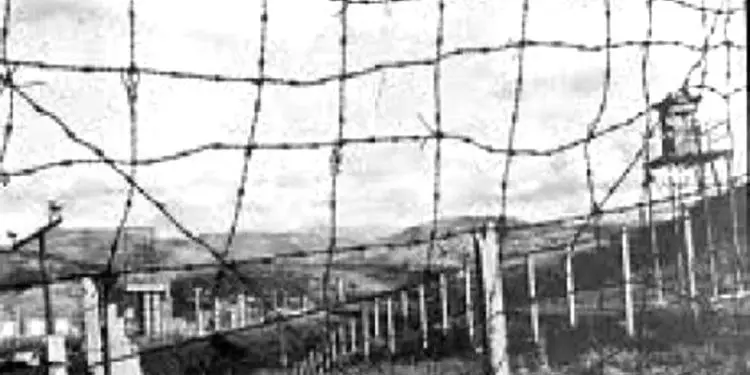
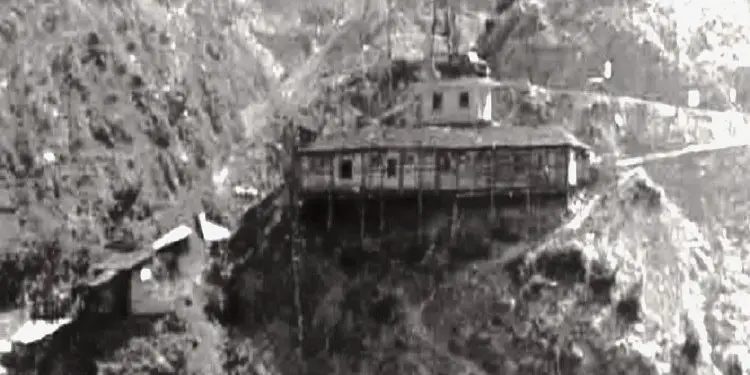
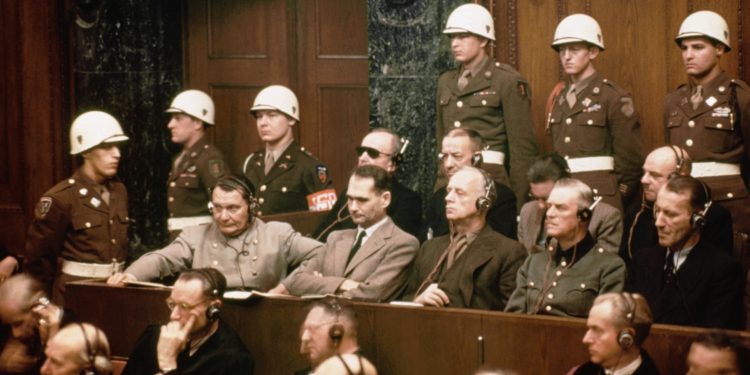
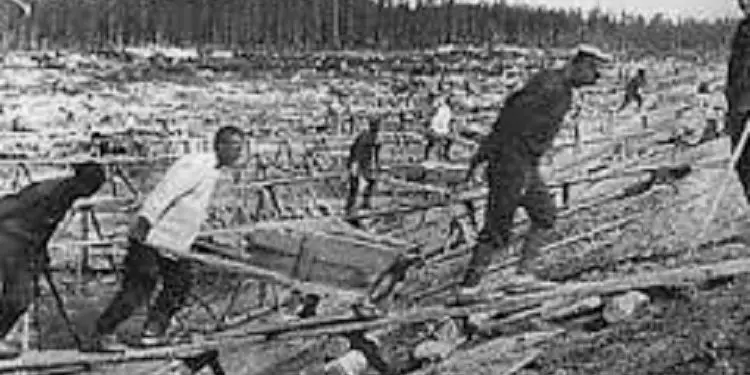
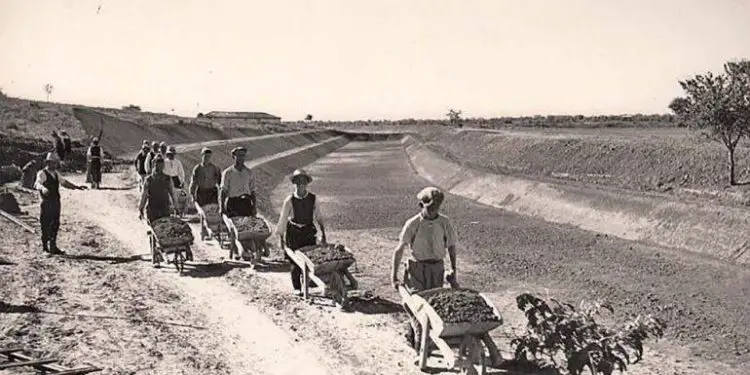
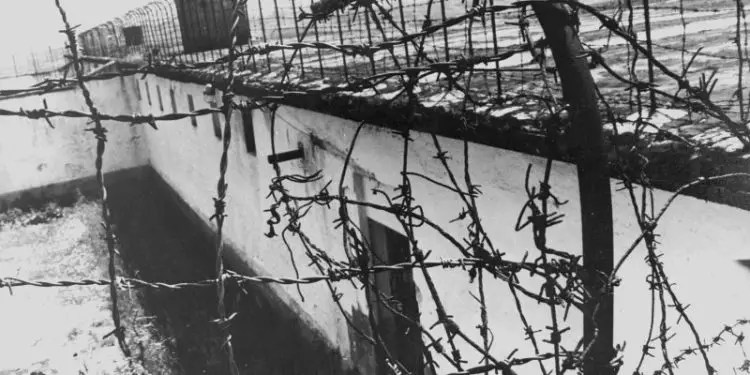


![“The ensemble, led by saxophonist M. Murthi, violinist M. Tare, [with] S. Reka on accordion and piano, [and] saxophonist S. Selmani, were…”/ The unknown history of the “Dajti” orchestra during the communist regime.](https://memorie.al/wp-content/uploads/2026/02/admin-ajax-3-350x250.jpg)
![“In an attempt to rescue one another, 10 workers were poisoned, but besides the brigadier, [another] 6 also died…”/ The secret document of June 11, 1979, is revealed, regarding the deaths of 6 employees at the Metallurgy Plant.](https://memorie.al/wp-content/uploads/2026/02/maxresdefault-350x250.jpg)


